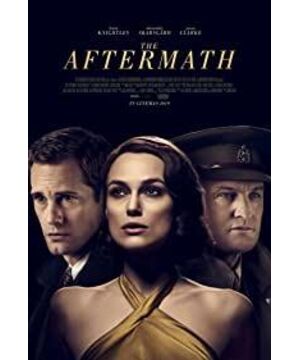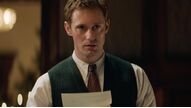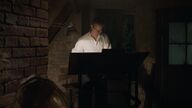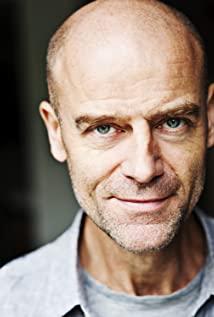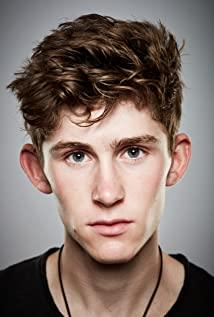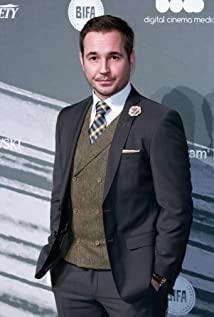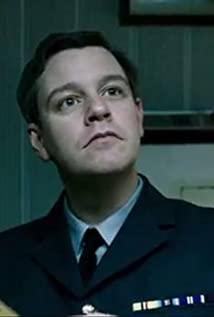The original novel of "Aftermath" comes from Maugham Prize winner Reidian Brook . The novel describes the living conditions of the British and Germans after the war to reflect the impact of the war on people. This is a special perspective: the earthquake has passed, the aftermath continues, the victors are ruling a dilapidated new world with difficulty, the losers are still fighting stubbornly, and people cannot be rejoiced because of the end of the war, because of the damage caused by the war. It's still spreading.
Because of my love for novels, I clicked on the film "The Aftermath" (Chinese name: "余波") based on the novel of the same name.
The story begins with the heroine Rachel (Kayla Knightley).
After World War II, Rachel traveled from England to Hamburg, Germany, to reunite with her husband Louis (Jason Clarke). On the slowly moving train, the British and Germans were separated by an aisle. People did not shake hands and say joy because of the end of the war. . At Hamburg Station, the winning British were kissing and hugging, their faces filled with the joy of reunion after a long absence.
When Rachel and Louis arrived in the city by car, they turned into another scene. The city destroyed by the war was like a huge open-air dump. The roads were piled with bricks and gravel. The Germans were expressionless. Watching the British car passing by, the women searched for the bodies of their loved ones among the ruins with a trace of luck.
After leaving the city, the car passed through the snow-covered forest and stopped in a magnificent manor. The owner of this manor is the talented German architect Rupert (Alexander Skarsgard). According to the rules of the war, the residents of the defeated country must move to the resettlement camp, and the house is handed over to the British officer, which is Louis escrow.
In this regard, Rupert showed amazing rationality and demeanor. He knew the crimes of the Germans in wars, and knew that personal will was meaningless in wars, so he did not resist the British officers taking over his house. Even before the arrival of the Louis family, he arranged his clothes and practiced English repeatedly. He had to maintain the dignity and demeanor of a gentleman, even in the face of enemies, even if he had to bid farewell to this generous life, and moved with his daughter to the resettlement camp. .
The next day, Louis went to patrol the streets as usual. The Germans in the settlement camp were in a dire situation, and there were still Nazis who did not accept defeat. Louis saw with his own eyes a German boy who was shot and killed mercilessly in a conflict with a British soldier. The boy was less than twenty years old and had a mark of 88 on his arm.
88 means "Long live Hitler" in German. Team 88 is the code name of the German "Werewolf Force". This force is almost entirely composed of Nazi descendants, and most of its members are young people with immature minds.
Facing this chaos, Louis, who was tired of wars and killings, couldn’t bear to send Rupert and his daughter to the resettlement camp. He decided to let the Rupert family stay and live on the top floor of the house. Rachel said This is very dissatisfied, but she is unable to change her husband's decision. Thus, the British and Germans who had hurt each other in the war lived under the same roof, and the story unfolded from here.
At first, the two families were not getting along well. Rachel was indifferent to the Rupert family because his son died in the German bombing. Rupert’s daughter Frida was also not friendly enough to Rachel because her mother , That is, Rupert's wife died in a bombing by the British. In the war, this kind of group injury has no substantial relationship with the individual, but the pain of bereavement still leaves the two families deeply separated.
One day, when Rachel returned home, there was a pleasant piano sound in the living room. She slowly walked into the room and saw Frida playing the piano in the living room. Rachel listened quietly. The sound of the piano reminded him of His own son. At this moment, Rupert came in and took away his daughter, because Rupert felt that the space between him and his daughter was only on the roof, and should not enter Rachel and Louis’ space casually, and Rachel said: Frida can Come here to play the piano, no problem. This is the first friendly dialogue between Rachel and Rupert. In this dialogue, Rachel realizes that the Rupert family are not enemies. Like themselves, they are victims of the war.
On the other hand, the relationship between Rachel and her husband Louis is deteriorating. Rachel always has a grudge against the Germans. She cannot forget that her son died in the bombing by the Germans. As a witness to this war, he hopes everything will happen as soon as possible. End instead of falling into sad memories. The seemingly loving couple actually had a crack, and none of this escaped Rupert's eyes.
One day, Rupert finished the investigation of the British soldiers and returned home. Rachel was alone at home. The two had a fierce quarrel over a painting. During the quarrel, Rupert kissed Rachel forcibly. Rachel was surprised. Not in time. Since then, the relationship between the two people has undergone subtle changes, and the plot has also been unfinished from here.
During the time when Rupert and Rachel secretly sent Qiubo, Louis was entangled in military affairs and was unaware of everything. He even had to leave Hamburg for a while because of official duties. Rachel, who was on the verge of derailment, knew what would happen to Louis once she left. She cried and begged Louis to stay or take herself along, but Louis did not agree.
After Louis left, Rachel, who missed her son, came to the living room one night. Rachel, who had not touched the piano for a long time, played a piece of Debussy Moonlight. Frida was attracted by the sound of the piano and came to the living room with Rachel. Playing, Rachel saw her dead son in Frida. If the son is still alive, he should be the same age as Frida.
As a result, Rachel could no longer control her emotions and cried loudly (Nateley contributed a crying scene where her acting skills burst). Rupert, who had been behind Rachel, walked over and hugged him tightly. After Rachel, the two people who had lost their relatives in the war found solace in each other's embrace.
After the hug, the two could no longer hold back the flames in their hearts. The single spark became a prairie fire. Rachel felt the power of love in Rupert's body. The two began to fall in love with each other, and even planned to be together. Leaving Hamburg.
After Louis returned to Hamburg, he learned the news of his wife's derailment, and Rachel did not hide the fact of the derailment.
As a man, Louis, of course, could not accept it. The two had a big fight. In this quarrel, the two people who had always restrained vented their emotions. After Louis admitted that his son died, he deliberately alienated Rachel because he saw Rachel. It reminded him of the death of her son, Rachel also frankly confessed that she noticed the changes in Louis, and they could never go back to the past. Finally, Louis let Rupert and Rachel free, and cried bitterly while holding his son's clothes.
In the end, just when Rachel and Rupert were about to embark on the train leaving Hamburg, Rachel changed her mind again. She said to Rupert: forgive me, and then trot all the way back to her husband, who also accepted it. With the cheating wife, the film is in the embrace of the husband and wife, happy ending.
The original plump novel was unfinished after being adapted into a movie. The main reasons for the unfinished were the following two points:
First, the word "aftermath" clearly indicates that the theme of the film is to express the psychological state of the people after the war. In the first 40 minutes of the film, the hatred between the civilians of the two countries, the resentment that is nowhere to be expressed, the underground organization of the Germans. The plot is well rendered, but perhaps due to time constraints, many well-prepared clues did not unfold. The second half of the film completely focused on the extramarital affairs. This is too far away from the subject.
Although the power of love is great, it is not a good medicine to resolve all hatred. Whether it is the pain of Rachel’s bereavement, Rupert’s bereavement of his wife, or the anger of the two of them at war, they all belong to Very deep and gloomy emotion, this emotion is unlikely to be resolved by romantic passion in a short period of time. Especially in the scene where Rachel and Rupert are lingering in the snow, Rachel said: I never thought I could be so happy. This sentence is obviously too shallow for a woman who has just lost a child in the war, because a love can forget the pain of losing a child, which is not in line with the personality of a normal woman.
Secondly, Rupert is a German gentleman who pursues perfectionism. The foreshadowing of the first half vividly expresses Rupert's rigorous, restrained and noble soul. Such a person must be with a British who is kind to him. The officer’s wife had a relationship. He must have experienced tortuous stories and complicated psychological struggles, but in the film, everything happened too suddenly and easily. Qiao Feng in the first half became Duan Yu in the second half. The set of people collapsed completely.
In short, because of the screenwriter, a good subject matter was wasted like this. Of course, although the film is unfinished, it is not useless.
The biggest highlight of this film is the appearance and acting skills of the female first Rachel and male second Rupert. The female protagonist Knightley has a highly recognizable high-level face. She is known in the European and American film circles as the "British Rose", and her acting skills need not be said too much.
Although Alexander, the second male actor from Sweden, is not well known, he was once voted the sexiest man in Sweden. In this film, he is handsome and cold, personable, deep blue eyes with a mysterious melancholy temperament, under his brilliance, the male one has no protagonist aura.
Because of this pair of Bi people, "extramarital affairs" does not seem to be so offensive. In fact, anyone who has experienced feelings should be able to understand more or less that feelings are one thing, and morality is another. In life, we must abide by morals, because crossing boundaries will bring endless troubles to our lives. In other words, we are "good people" not because we are really good people, but because we are afraid of getting into trouble.
But the characters in the works of art do not have these worries, they are free and unrestrained, they can bravely cross the restricted area and walk to places where we cannot easily go. Compared with a well-behaved life, we are more willing to see bold breakthroughs and leaps in art works. Artists who cross the border are not only not disgusting, but likable, because they can see the scenery in the restricted area for us. To sum up with a vulgar word: Rachel and Rupert satisfy all our illusions about extramarital affairs.
The second highlight of the film is the scene and dialogue. The ruined cities after the war, the cold and solemn European forests, and the furnishings of Rupert’s house, every frame of the picture is filled with noble sadness, like a proud prince, after experiencing an ordeal, he was covered in bruises, but he He did not lose his beautiful nature. This may be in line with the theme of the original work: Although war is cruel, it must not deprive mankind of the best things: love and kindness.
In addition, the film shows some of the original author’s views on war through character dialogue:
Louis: You also sent the children to help you kill.
War criminal: Of course, children are the best killers. They don't ask questions, and you don't dare to take the kids.
Louis: Then you are wrong. I can kill anyone smaller than this. When the war began, before the official intervention, I saw a German and killed one because I wanted the war to end.
War criminal: You are also a murderer. Do you think we forgot? You are like a child, you cover your eyes and think that the world does not exist, but we will not forget.
This is a thought-provoking dialogue. It tells us: War is a chaos that even God cannot stop. Don’t be so simple that you can change something with the power of one or two people. In this chaos, you have to do A clear choice is to be a cowardly little person, hide in the sewer like a mouse, and strive to survive until the end of the war. Rupert represents this path; or participate in the war without hesitation and fight mercilessly, because there is only killing. Only by exhaustion can we end the war and restart a new life. Louis represents this path. No one can maintain morality and justice in a war without having blood on his hands.
Therefore, if you are tired of watching a bloody war movie, then you might as well watch this unfinished literary film. Don't pursue the plot and characters, just watch the beautiful pictures quietly.
View more about The Aftermath reviews


